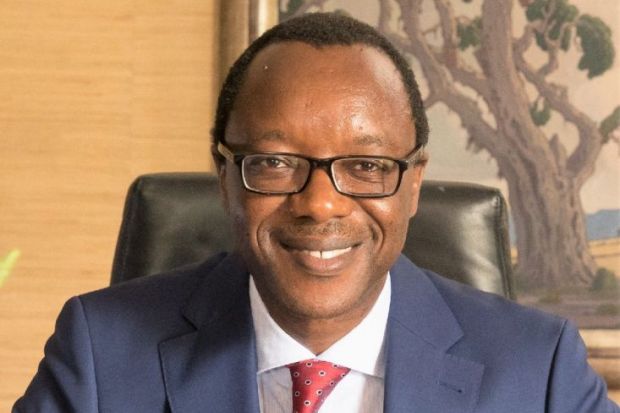The leadership of South African higher education faces further turmoil after the shock resignation of the vice-chancellor of the University of Pretoria.
Tawana Kupe, the first black head of the 115-year-old institution, will step down from his role six months before the end of his five-year term.
It follows the sudden end of Mamokgethi Phakeng’s time at the University of Cape Town (UCT) in February, and a damning report on the leadership of the University of South Africa (Unisa) in May.
Pretoria announced on 13 June that Professor Kupe had resigned from his position, with effect from 31 July.
“We express our gratitude to Professor Kupe for his contributions throughout his tenure,” said Kuseni Dlamini, the chair of Pretoria’s council.
Professor Phakeng took early retirement from her second term at UCT in February, amid a governance investigation, reportedly with a large pay-off.
Months later, that investigation led to the resignation of Babalwa Ngonyama, the chair of the UCT council, after a heavily critical report accused her of posing a “serious risk to the university”.
Also last month, another report – by Professor Kupe’s Pretoria colleague and vice-principal, Themba Mosia – urged the government to place Unisa into administration and to relieve its management and council of their duties.
And Wim de Villiers, the vice-chancellor of Stellenbosch University, is reportedly facing allegations of nepotism.
Amid all this, the sector continues to grapple with persistent student disruptions, disputes over tuition fees and worries that new institutions will further stretch limited funds.
Professor Kupe, who previously served as the vice-principal of the University of the Witwatersrand, took up the role as 13th vice-chancellor of Pretoria in January 2019.
The council said that an interim vice-chancellor would be appointed in due course, and that it would immediately begin the process of finding a “suitable successor”.
“We are committed to conducting a comprehensive search to identify a suitably qualified individual who will lead the university into the future,” said a spokesperson.
“Appropriate interim arrangements that will help facilitate the smooth functioning of the institution will be put in place.”
Professor Kupe said that change is an “inevitable part of growth and progress”, but the decision to step down was not an easy one.
“After careful introspection, I have realised that it is time for me to embark on a new chapter in my academic journey,” he told Times Higher Education.
“I haven't taken a sabbatical in a while, and I have two major book publications due in 2024.
“Additionally, I would like to use the next few months to transition into a more academic role as I aim to make a further contribution to the work in which I have been successfully involved within university networks.”
Register to continue
Why register?
- Registration is free and only takes a moment
- Once registered, you can read 3 articles a month
- Sign up for our newsletter
Subscribe
Or subscribe for unlimited access to:
- Unlimited access to news, views, insights & reviews
- Digital editions
- Digital access to THE’s university and college rankings analysis
Already registered or a current subscriber?










